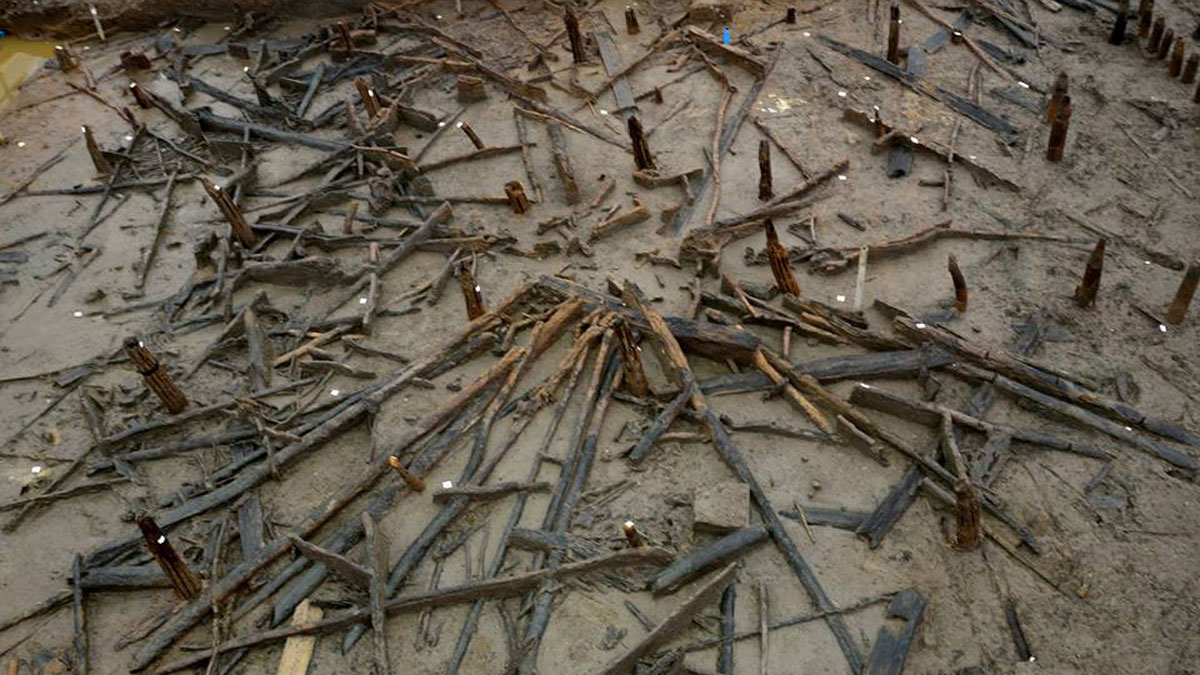'Britain's Pompeii' found by archaeologists in Peterborough
Discovery of two Bronze-Age dwellings in Cambridgeshire has 'international significance', say experts

A free daily email with the biggest news stories of the day – and the best features from TheWeek.com
You are now subscribed
Your newsletter sign-up was successful
Archaeologists are hailing the discovery of two Bronze-Age houses and their contents at a quarry in Peterborough. The find, which has been described as having "international significance", is believed to date to about 1000-800BC.
It is thought that the houses were once built on stilts that were consequently ravaged by fire, causing the settlement to fall into a river where silt and clay helped preserve the contents.
Duncan Wilson, chief executive of Historic England, said the settlement was akin to the ancient Roman site of Pompeii, which was devastated by a volcanic eruption in 79AD.
The Week
Escape your echo chamber. Get the facts behind the news, plus analysis from multiple perspectives.

Sign up for The Week's Free Newsletters
From our morning news briefing to a weekly Good News Newsletter, get the best of The Week delivered directly to your inbox.
From our morning news briefing to a weekly Good News Newsletter, get the best of The Week delivered directly to your inbox.
"The nearest analogy I can think of is Pompeii, where there was a catastrophe and everybody left very quickly, leaving behind their food vessels, and some died in the process," he told Sky News.
What have archaeologists found?
Artefacts include a collection of everyday domestic objects, including jewellery, spears, daggers, giant food-storage jars and delicate drinking cups, glass beads, textiles and a copper spindle with thread still attached. Preserved footprints believed to be from people who once lived there have also been unearthed 6.5ft below today's surface.
"It feels almost rude to be intruding," site director Mark Knight told The Guardian. "It doesn't feel like archaeology anymore. It feels like somebody's house has burned down and we're going in and picking over their goods."
A free daily email with the biggest news stories of the day – and the best features from TheWeek.com
The discovery of cooking pots filled with food and clothing is seen as evidence that the inhabitants had to make a quick escape due to the fire.
What does this tell us?
"This site is of international significance and its excavation really will transform our understanding of the period," David Gibson, one of the leading archaeologists on the dig, told the BBC. " So much has been preserved, we can actually see everyday life during the Bronze Age in the round. It's prehistoric archaeology in 3D, with an unsurpassed finds assemblage both in terms of range and quantity."
Knight agreed, saying: "Here we've got the lot. We should be able to find out what they wore, what they ate and how they cooked it, the table they ate off and the chairs they sat on
"These people were rich, they wanted for absolutely nothing," he added. "The site is so rich in material goods we have to look now at other Bronze Age sites where very little was found and ask if they were once equally rich but have been stripped."